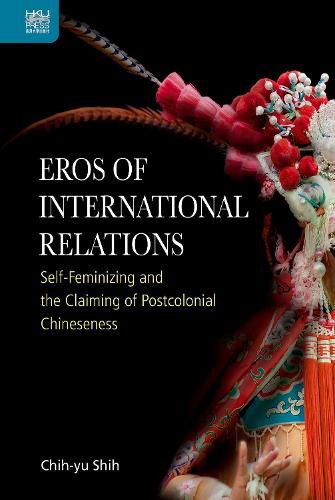Readings Newsletter
Become a Readings Member to make your shopping experience even easier.
Sign in or sign up for free!
You’re not far away from qualifying for FREE standard shipping within Australia
You’ve qualified for FREE standard shipping within Australia
The cart is loading…






A revisionist take on the concept of self-feminizing in the postcolonial global order. Sovereign actors who have historically claimed to act on behalf of Chineseness often took advantage of the images of femininity thrust upon them by the West. Eros of International Relations: Self-Feminizing and the Claiming of Postcolonial Chineseness explores the much-neglected Chinese perspective in broader international relations theory. Using the concept of self-feminizing –the adoption of a feminine identity to oblige and achieve mutual caring as a relational strategy–this book argues that postcolonial actors employed gendered identities to survive the pressures of globalization and nationalism. Shih also illustrates the feminist potential for emancipation, as actors who self-feminize deconstruct the binaries of masculine competition and seek alternative strategies under the postcolonial global order.
$9.00 standard shipping within Australia
FREE standard shipping within Australia for orders over $100.00
Express & International shipping calculated at checkout
A revisionist take on the concept of self-feminizing in the postcolonial global order. Sovereign actors who have historically claimed to act on behalf of Chineseness often took advantage of the images of femininity thrust upon them by the West. Eros of International Relations: Self-Feminizing and the Claiming of Postcolonial Chineseness explores the much-neglected Chinese perspective in broader international relations theory. Using the concept of self-feminizing –the adoption of a feminine identity to oblige and achieve mutual caring as a relational strategy–this book argues that postcolonial actors employed gendered identities to survive the pressures of globalization and nationalism. Shih also illustrates the feminist potential for emancipation, as actors who self-feminize deconstruct the binaries of masculine competition and seek alternative strategies under the postcolonial global order.